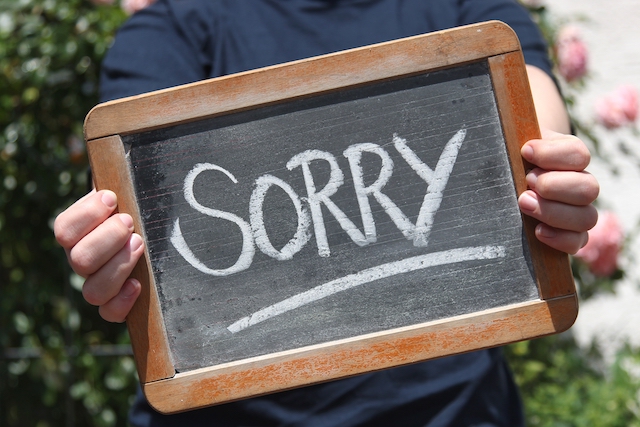By Jess Caire
I have a lovely staff member, let’s call her Elouise.
Elouise has recently joined us, she is bubbly, happy and friendly. She has come back after taking 10 years out of her career to do another job (and in my opinion the hardest job in the world) – raising three boys.
Elouise and I both knew a lot of things would have changed over those 10 years. And not just from a legislative point of view in our industry, but technology and even the way a typical office functions today.
I knew Elouise had the right attributes for our team, and with some training, guidance and encouragement she would be up and running in no time…
And she is. But Elouise does one thing a lot of women do. Elouise says “sorry” every time she doesn’t know something. As if I am owed an apology for her not knowing…
I am definitely not owed an apology for that.
I used to be like Elouise. Saying sorry for things, I didn’t need to be sorry for. Sorry I didn’t know that. Or sorry I wasn’t fast enough, best enough, good enough. I quickly realised I was apologising for things that don’t need apologies. I don’t want my children to grow up hearing me apologise for things I have limited control over. Or for things I think I “should have known” but in fact, probably couldn’t have. Or for who I am, or what I believe in.
The definition of an apology is to “express regret for something that one has done wrong”. But how do we define wrong? It’s about finding that balance, for ourselves, between an innocent and relatively insignificant wrong (like mucking up a pass on the netball court) with the wrong that causes deep regret or hurt (though don’t get me wrong, I fully understand the pain we can feel when that netball misses the goal with 5 seconds left on the clock!).
An apology is for when you feel deep regret and you want the impacted party to know. Sorry is for when you hear bad news, and you want to convey your sympathy. Sorry is for I hurt you, and I shouldn’t have.
So, save the apologies for when they really matter. Saying sorry is hard, and heartfelt apologies mean the most. When you say it all the time it means something different, and becomes less significant. But worse yet, when you say sorry for something when you really don’t have to, you rob yourself of who you are and invite criticism where there should be none. You are basically putting yourself down!!
Things you should never be sorry for;
1. Who you are
2. Your likes and dislikes
3. Not knowing things you haven’t been taught or shown
4. Your priorities
5. Your beliefs
6. Standing up for yourself or what you believe in
Women have a powerful voice, united we can do anything – but constantly apologising for things listed above, or things that we absolutely should not apologise for, dilutes the power of our voices. Be strong, stand up, and speak up. Ask questions, lots of them, and keep asking, speak, learn, grow and never ever apologise for who you are.
“You will always be too much of something for someone: too big, too loud, too soft, too edgy. If you round out your edges, you lose your edge.
Apologise for mistakes. Apologise for unintentionally hurting someone — profusely. But don’t apologise for being who you are.” – Danielle Laporte
Love, Jess x









